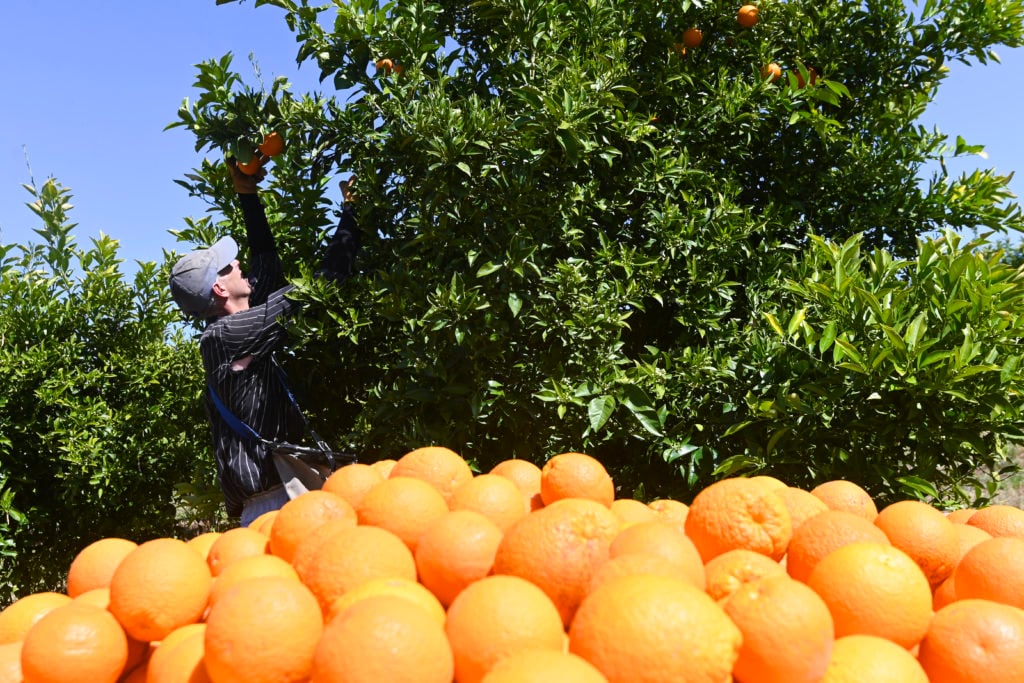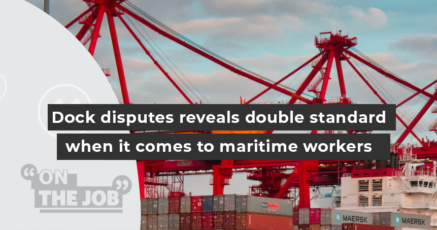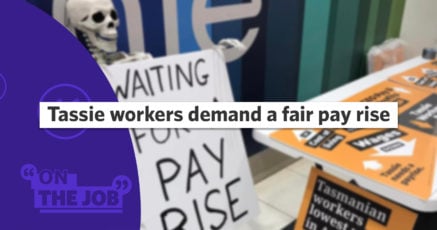Free trade or fair trade agreement?
That is the big question left hanging in the air after the bluff and bluster of Scott Morrison and UK Prime Minister Boris Johnson’s proclamation of an agreed free trade deal between and Australia and the UK.
Both Prime Ministers put on a song and dance act about the economic miracles that would flow from their new deal, yet details were as scarce as a comb in Boris Johnson’s bathroom at Number 10 Downing Street.
Workers in both countries will be wary of such vaudeville showmanship promising great rewards for all. The devil is very much in the detail, and the detail is nowhere to be seen.
ACTU President Michele O’Neil rang the alarm, saying Australian workers will need to be alert to what any free trade deal will mean for the future.
“The Australian Government is yet again entering into an agreement in secret which will impact workers across the country,” O’Neil said.
“It is critical that Prime Minister Morrison does not sign an agreement without labour market testing – this would allow employers unrestricted access to easily exploited temporary migrant workers and undermine the local labour market by driving down wages and conditions.
“We do not want to see the continuation of the horrendous conditions for Working Holiday Makers for those on a new agriculture visa, where some workers are paid as little as $3 an hour.”
National President of the Australian Manufacturing Workers’ Union (AMWU) Andrew Dettmer told On the Job that any free trade agreement that is struck without consultation with workers, community groups and unions will fall well short of the mark.
“A fair trade agreement will be one that is subject to consultation with community groups and unions and not just dealing with a Government which has run out of policy ideas, and only wants to advocate the views and interests of its corporate backers,” Dettmer said.
“A fair trade agreement would have at its heart, proper national development and not a headline to be generated by a PM desperate for relevance.”
For Dettmer, this latest announcement has echoes of previous free trade deals, most of which he believes have punished Australian workers and destroyed jobs.
“Every other free trade agreement we’ve had has basically had at its heart the destruction of a particular segment of Australian industry.
“The one we negotiated with Japan was the final nail in the coffin of the automotive industry. The deal with China was supposed to provide a capacity for Australian products to be exported more readily in China. Well, that worked out well,” he said, sardonically.
Dr. Patricia Ranald is the Convener of The Australian Fair Trade and Investment Network (AFTIN). Speaking with On the Job, she said that the history of free trade agreements means workers have a right to be wary.
“It’s true that, in general, trade agreements increased competition and therefore put pressure on labor rights and working conditions,” Ranald said.
“In this case, we don’t know whether there are any commitments by governments to actually abide by United Nations and International Labour Organization standards on working conditions.
“We do know that there are going to be some increased arrangements for people to come to Australia through a special agricultural visa. That will not only apply to people in Britain but also apply to people in Southeast Asia. Our experience of these types of visas is that the workers who come under those arrangements are tied to one employer and they’re very vulnerable to exploitation.”

The AFTIN is also concerned about the potential for Australia’s regulatory system to be subject to legal action from foreign corporations who could use provisions in a free trade agreement to challenge Australian laws.
“The UK Government has indicated that it wants to include special rights for corporations to be able to sue governments if they can argue that a change in law policy harms their investment.
“This is the provision under which the Philip Morris tobacco company used to try to sue Australia over its tobacco plain packaging law.
“In the case of the UK, this is particularly dangerous because UK companies are big users of these provisions, which are known as investor-state dispute provisions or ISDS.”
Ranald points out that Australia’s aged care and health care systems, already straining under the weight of dealing with the COVD19 pandemic, could be particularly vulnerable.
“It would mean for example, that in the aged care industry, BUPA, which is a major British company providing aged care in Australia, would have the right to react to and possibly sue the Australian Government if the Government decides to change regulations for aged care, as recommended by the Aged Care Royal Commission,” explained Ranald.
“So, if the Australian Government decides to have stronger regulations for staffing levels, and quality of care in aged care, it would be open to BUPA as a British company, to sue the Australian Government for millions of dollars over that change.
“Now, that is something which threatens the democratic right of the Australian Government to make changes which are in the interests of all Australians and all workers,” Dr Ranald warned.
The Convener of AFTIN insists that Australian workers and their communities need to be alert to the possibility of any free trade deal that undermines the regulation of the economy.
“From a worker’s point of view, we rely on regulation to make people’s lives better. We want the labor market to be regulated. We want medicine prices to be regulated. We want aged care to be regulated,” said Ranald.
“So, there is this problem, that there are these secret negotiations behind closed doors, which can mean that essential regulations are traded away in order to get zero tariffs or some other concessions on Australian exports.
“We think that sort of trade-off is wrong, and that governments should not be trading-off essential regulations, behind closed doors when these are issues which will be dealt with in the democratic parliamentary process and through open and transparent processes.”








SHARE:
Free trade isn’t fair trade when workers are sold short